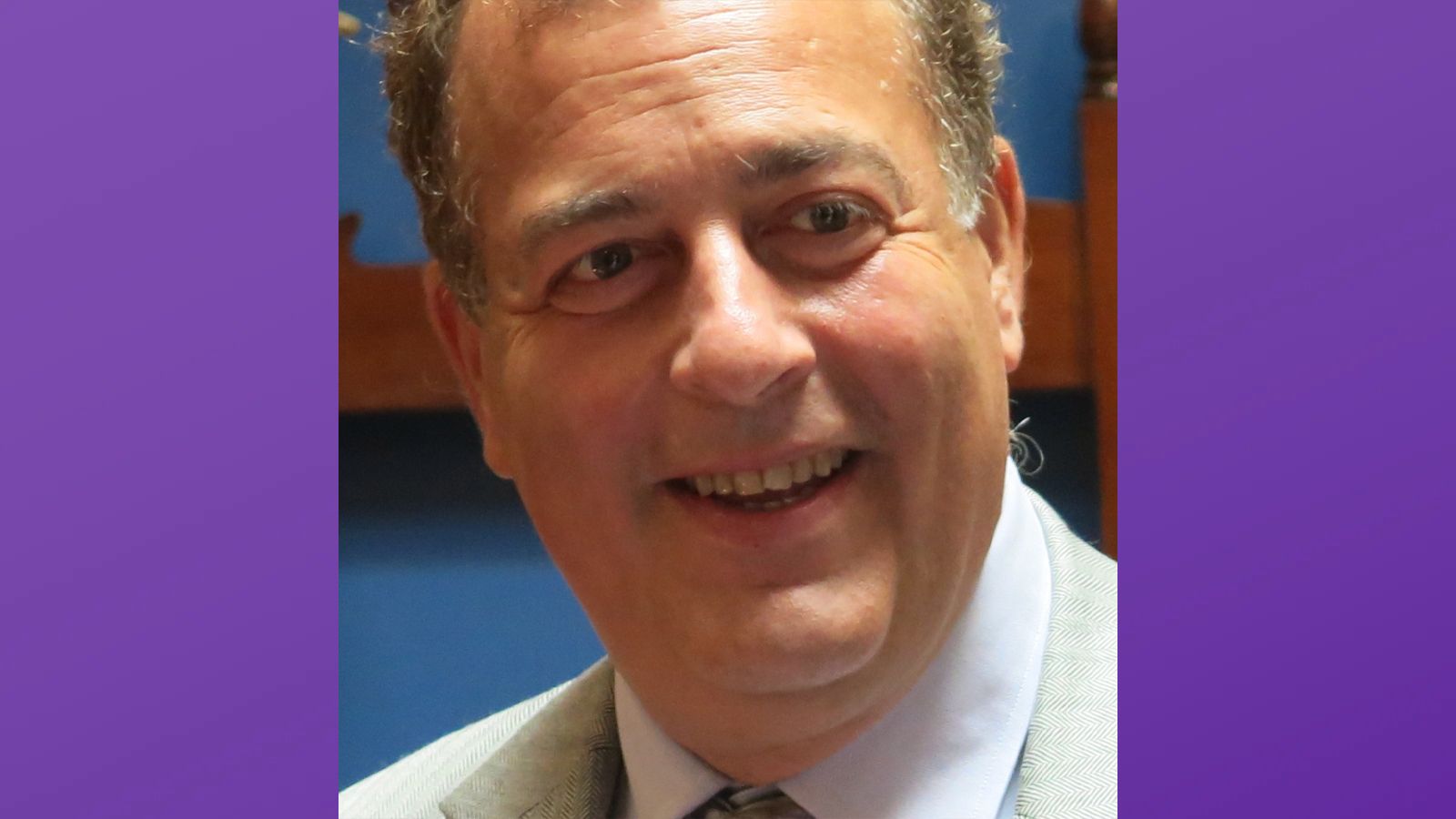William Sakas, the esteemed chair of Hunter College’s Computer Science Department and a pioneering researcher known for his groundbreaking computational models of language acquisition in children, died on March 21 in Freeport, NY. He was 63.
“William always had a smile on his face, which was a difficult thing to do as a department chair,” said his research assistant, Khant Ko Naing. “He was more than a boss — he was a mentor and friend, not just to me but to faculty, staff, and students at both Hunter College and the Graduate Center.”
Sakas was not only a beloved and dedicated professor but also a mentor who tirelessly supported his students in securing internships and employment opportunities in the field. His unwavering commitment to scholarship was evident throughout his more than 25-year tenure at Hunter and The CUNY Graduate Center, where he obtained his doctorate.
Sakas leaves a lasting legacy of academic excellence. He developed several courses that are the mainstays of Hunter’s Computer Science major, including its introductory course, and advanced courses in Computational Linguistics for Phd and Master’s students. William was also a champion of making computer science accessible and equitable for all. He revised the Computer Science major to allow students to declare computer science as their major without any prerequisite courses and converted required major courses to large lectures to accommodate the large number of students interested in computer science.
He published widely, with research drawing on Psychology, Computational Linguistics, linguistic theory, machine learning, probabilistic modeling, corpus analysis, psycholinguistics, and computational-learning theory.
“Dr. William Sakas was a beloved friend and colleague of the Graduate Center’s Computer Science doctoral program community,” said Professor Ping Ji, executive officer of the Computer Science program and director of the Data Science master’s program. “Many of us have known and worked with William for decades. His voice at our meetings and social events was greatly appreciated and will be forever remembered. His passing stunned many of us in sorrow and disbelief. We lost an ally for the computer science research community at CUNY, and most importantly, we lost a dear friend whose wisdom and cheering character will be deeply missed.”
Sakas served as the director of the Graduate Center’s Computational Linguistics Masters Program and Doctoral Certificate Program, which he co-founded, and on many faculty committees. He also consulted for industry, with clients including Citibank, Warner Publisher Services, and Warner Books.
“The Linguistics program has lost a brilliant, caring, and dedicated colleague in Professor William Sakas, whose passing comes less than a year after that of his mentor and collaborator, Distinguished Professor Emerita Janet Fodor,” said Professor Cecelia Cutler, executive officer of the Linguistics program. “William supervised numerous Computational Linguistics M.A. theses and dissertations and served on many students’ committees. He will be remembered by his colleagues and students not only for his intellect but also his cheerful, can-do spirit, his warm hugs, and his kindness.”
Sakas, who grew up in Douglaston, Queens, studied Economics as an undergraduate at Harvard, where he earned his BA in 1982. He had an interesting journey before ending up at Hunter — he worked as a part-time florist at his family’s flower shop in Gramercy, taught computer science at The American School in Switzerland, and worked as a consultant for Citibank, Warner Publisher Services, and Warner Books before starting his doctorate at the Graduate Center.
Sakas developed an interest in the field of psycholinguistics after taking a course at the Graduate Center with Dr. Janet Fodor, who became his mentor, research collaborator, and friend. His research focused on language acquisition and learnability theory, constructing a psychological model of language acquisition. He sought to shed more light on the complex nature of how human infants learn language in four to five years, regardless of the complexity of the language.
An avid musician who played the piano, in the late 1980s Sakas was resident composer and lyricist of the Don Quixote Experimental Children’s Theater, where he wrote the musical scores for several children’s shows.
Sakas is survived by his wife, director of Japanese Studies at Queens College, Mari Fujimoto, daughter Maia, and son Sage.


